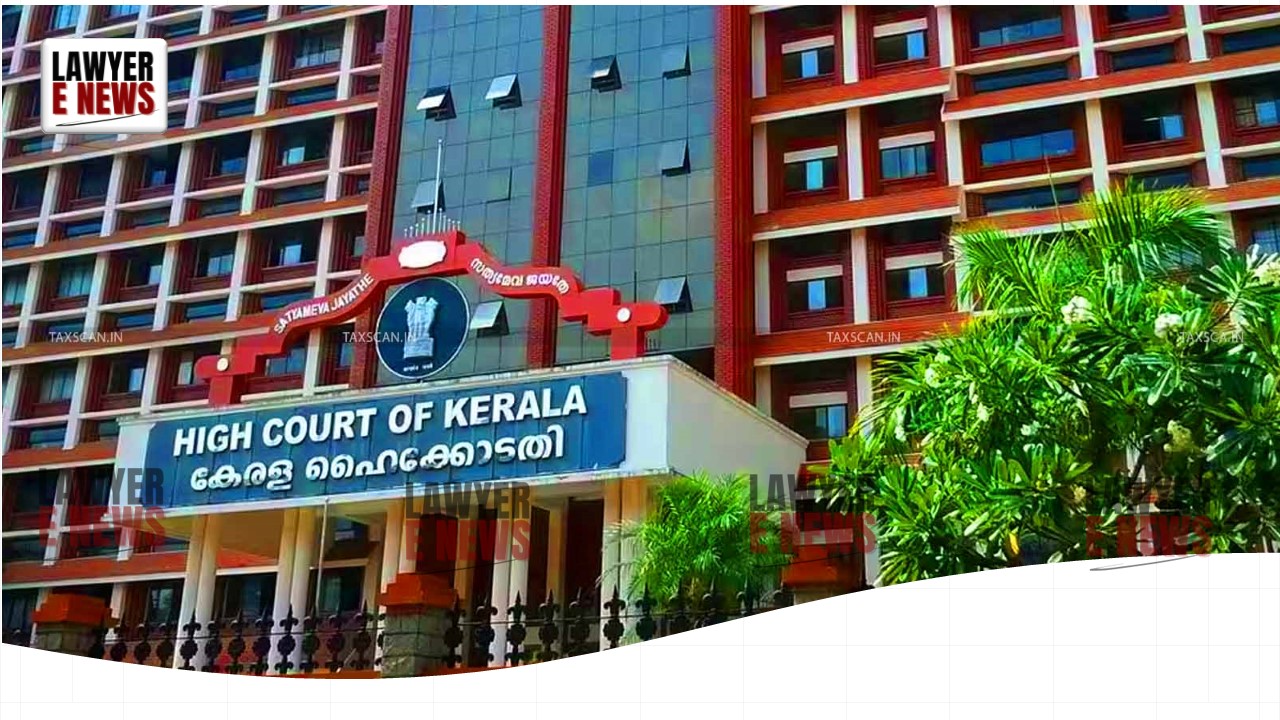-
by Admin
15 February 2026 5:35 AM



Kerala High Court Holds Price Escalation Clause Valid in Delays Attributable to the State and confirming a contractor’s entitlement to price escalation under Clause 32A of the agreement after delays were found to be caused by the State. The Court dismissed the State’s counter-claim of excess payments and unauthorized use of materials, holding that the plaintiff was entitled to Rs. 28,87,190/- with interest at 6% per annum from the date of the suit until realization.
"Clause 32A Ensures Fair Compensation for Contractors Not Responsible for Delays"
Justice Sathish Ninan and Justice Johnson John, while affirming the lower court's judgment, held that K.T. Kuriakose, an "A" class contractor, was rightfully entitled to compensation for price escalation under Clause 32A of the contract since the delay in project completion was attributable to the State’s actions, including improper management and project alterations. The Court observed:
"Clause 32A of the contract provides for price adjustment when the work could not be completed within the contractual period due to no fault of the contractor. The delay here was caused by the defendants, as shown by their own extensions of time without penalties."
K.T. Kuriakose was awarded multiple contracts under the Kallada Irrigation Project, including works on the Karunagappally Branch Canal and Vallikunnam Distributory. The original project was to be completed within 14 months but faced multiple delays. The State granted time extensions but eventually foreclosed the contracts in 1994. The plaintiff continued to perform additional works, but disputes arose over payment and price adjustments for escalation. After receiving only partial payments, Kuriakose filed a suit for the outstanding amount in 2009.
The Sub Court of Kottarakkara decreed in favor of the contractor, awarding him Rs. 28,33,398/- along with 6% interest per annum, and dismissed the State’s counter-claim for overpayment and unauthorized use of materials. Dissatisfied with the judgment, the State of Kerala appealed, arguing that the claim was time-barred and asserting that they had overpaid the contractor.
Whether the contractor was entitled to price escalation under Clause 32A of the principal agreement;
Whether the suit was barred by limitation;
The appropriate interest rate on the amounts claimed;
The validity of the State's counter-claim regarding excess payments and unreturned materials.
The appellants contended that the suit was time-barred, as the foreclosure occurred in 1994. However, the Court found that the last payment to the contractor was made on January 27, 2006, and the suit was filed on January 22, 2009, well within the permissible period. Additionally, the Court emphasized that technical pleas of limitation should not be used by government authorities to defeat just claims, citing the Supreme Court’s observations in Madras Port Trust v. Hymanshu International (1979).
"Governments and public authorities should avoid taking technical pleas of limitation to defeat legitimate claims of citizens," the Court reiterated, rejecting the plea of limitation.
Interest Rate Capped at 6%, Dismissing Higher Interest Demand
While the respondent sought 12% interest on the outstanding amount based on an earlier High Court judgment (Exhibit A44), the Kerala High Court found that this rate applied only to admitted bills and not disputed claims. The Court upheld the trial court’s decision to grant 6% interest per annum, noting the lack of a contractual provision for a higher rate.
No Excess Payments or Unauthorized Use of Materials Proven
The defendants' counter-claim, alleging overpayment and unauthorized use of materials, was also dismissed. The Court found that all supplementary agreements were executed with appropriate negotiation and government approval, and there was no evidence supporting the claim of excess payments.
"The supplementary agreements for extra items of work were executed after negotiation, based on the PWD schedule of rates. The Government’s claim that these rates were excessive is without legal basis," the Court held.
The Kerala High Court dismissed the appeal filed by the State and partly allowed the cross-objection by the contractor. The Court affirmed the contractor’s right to price escalation under Clause 32A, while rejecting the State's counter-claim of overpayment. The final award to the contractor amounted to Rs. 28,87,190/-, with 6% interest per annum from the date of the suit until realization.
Date of Decision: October 17, 2024
State of Kerala & Ors. v. K.T. Kuriakose
